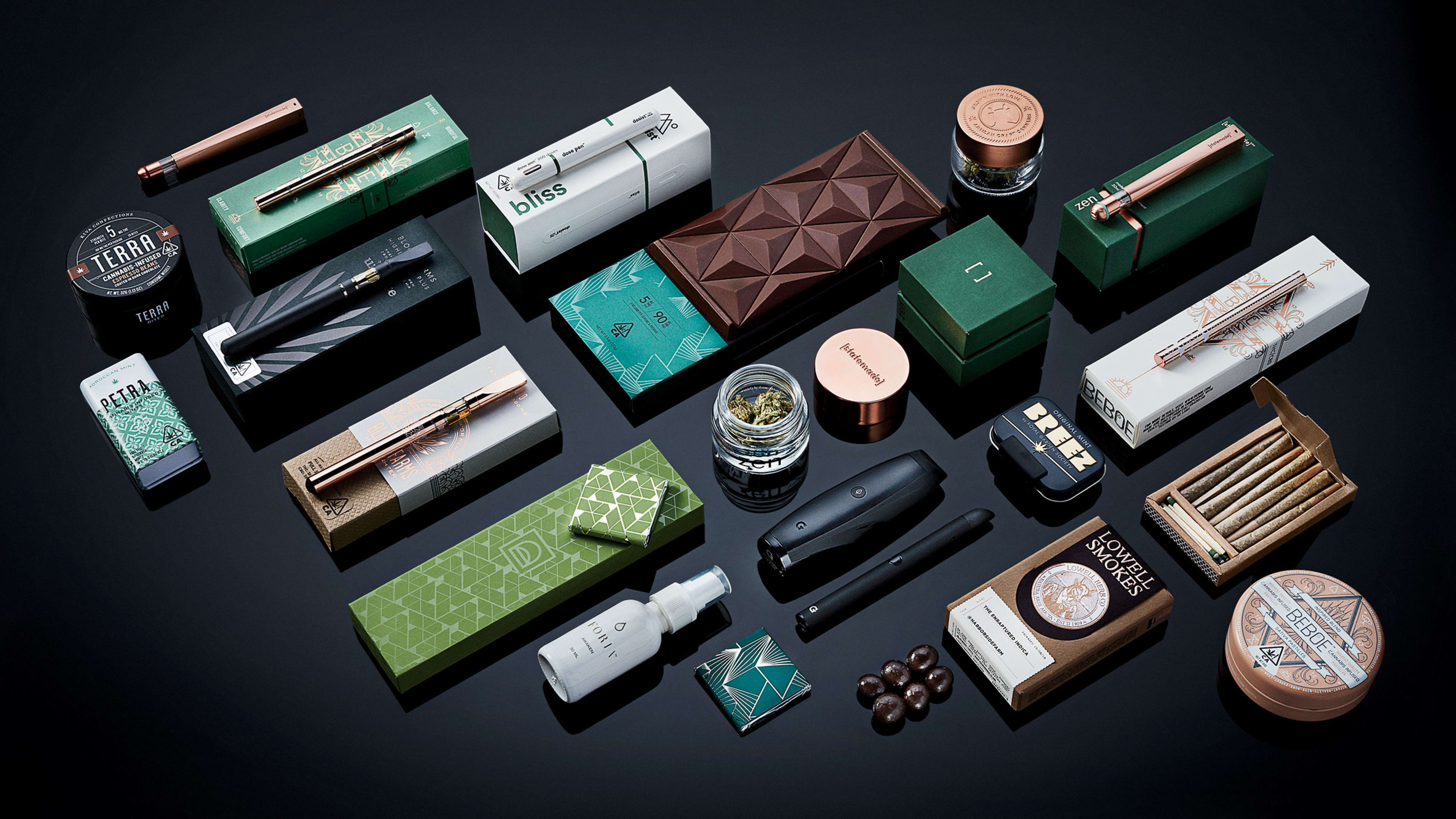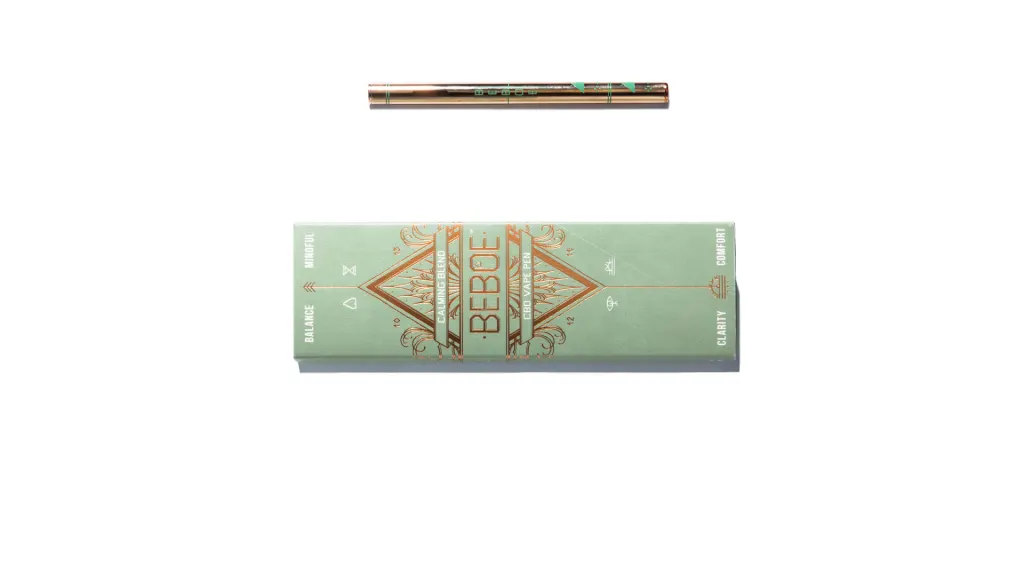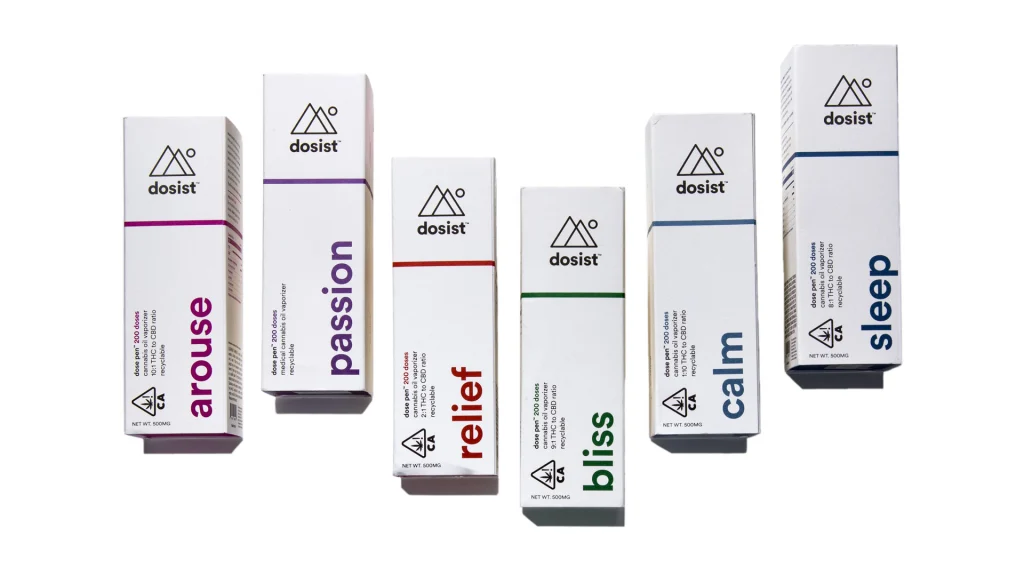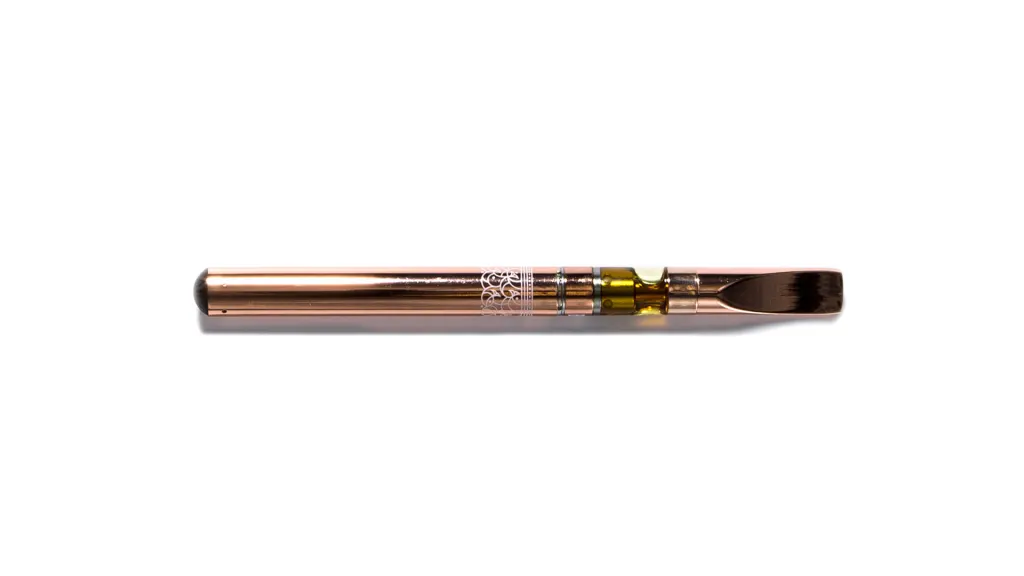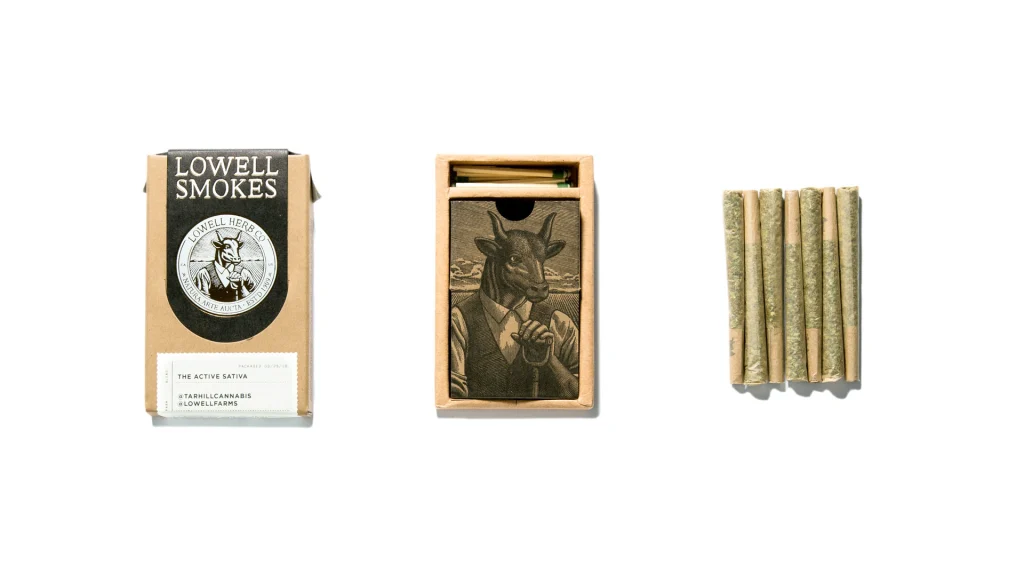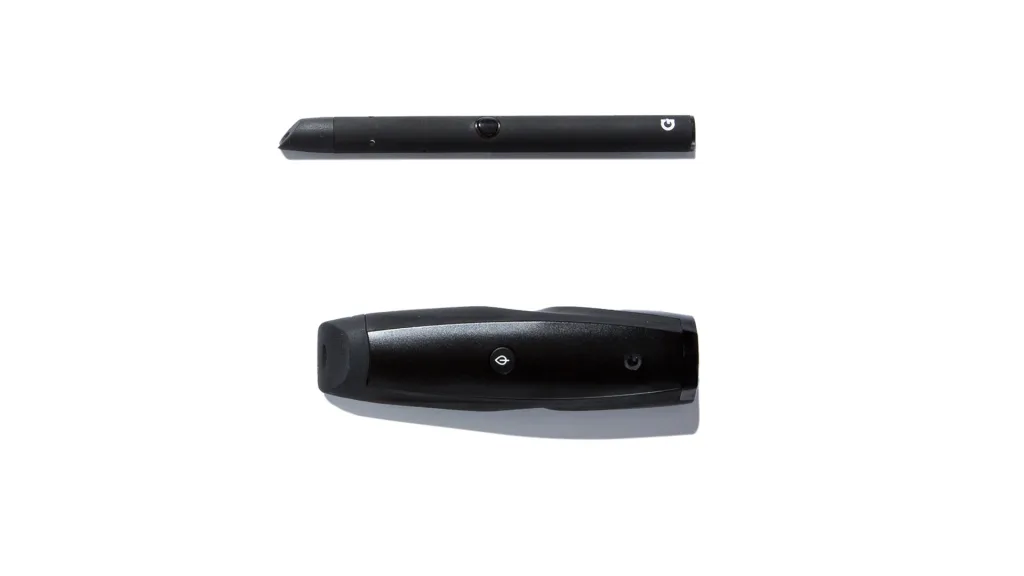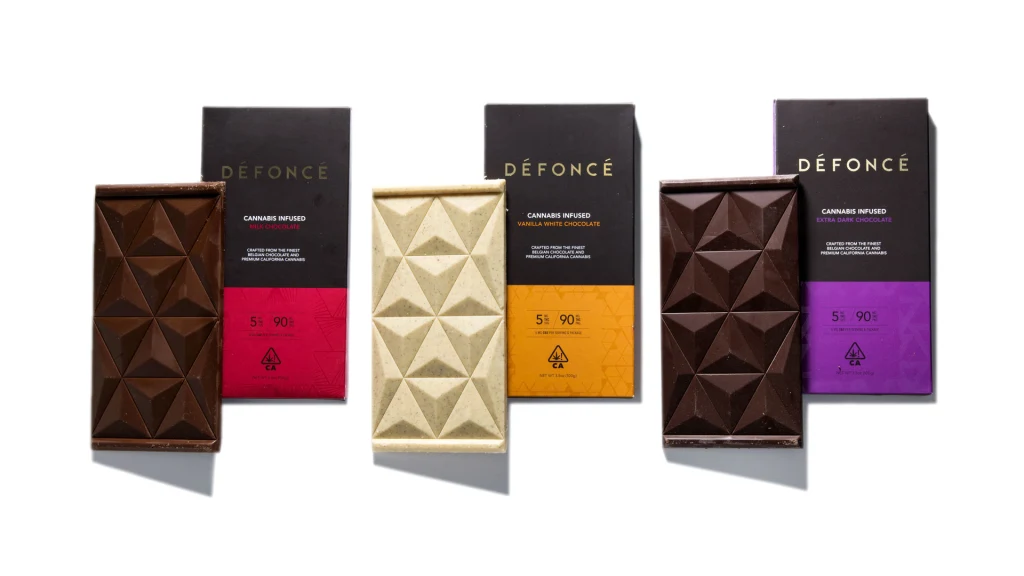Marijuana has come a long way from the days of plastic baggies and glass jars filled with OG Kush and Sticky Icky Icky. Today’s cannabis (née weed) is sold in posh retail outlets, which stock dozens of different products, from medicinal-style vaporizers to THC-infused candies, aimed at veteran users and neophytes alike. In the past year, $2.2 billion of venture capital has flowed into 324 cannabis deals globally, according to research firm CB Insights. In the United States, many of the deals are rooted in California, the largest legal market, where recreational use has been legal since 2018 and consumer-facing companies are scrambling to turn what is essentially a commodity product into something more distinctive.
“There’s a chance to create a Levi’s, Coca-Cola, or a Kleenex of a new industry,” says Sean Black, cofounder of Santa Barbara’s Lowell Herb Co. His two-year-old business specializes in prerolled joints packed in vintage-style boxes, complete with letterpress inking, foil stamps, and a set of green-tipped matches. For that throwback vibe, users pay roughly $70 for 14 joints. The company, which broke into the scene a couple of years ago by creating bud-laced floral crowns for Coachella, also sells bucolic $300 bouquets of marijuana flowers and eucalyptus stems. San Francisco–based Defoncé (“high” in French) similarly uses design to elevate its chocolates from the edible masses. CEO Eric Eslao, a former Apple producer, says that the signature origami-like pattern on his chocolate bars ($20) is based on a quilted Burberry jacket that he once wore, while the company’s elegant packaging owes a debt to Apple’s industrial design.
Brands in the crowded vaporizer space, meanwhile, are jostling for attention by appealing to different demographics. The fashion-forward Beboe, cofounded by L.A. tattoo artist Scott Campbell and Clement Kwan, a former Yoox and Dolce & Gabbana executive, offers relaxation via delicate rose-gold vape pens (from $60) and tins of pink pastilles. High-end dispensary MedMen recently launched a gender-neutral brand, called Statemade, which features a squared-off copper vaporizer ($72) that looks like the Bauhaus of blunts. Ad agency Anomaly helped develop the medicinal-looking white vaporizers ($100) of the three-year-old Dosist. Available in California and Florida, they are calibrated to address pain, anxiety, sleep issues, and more. “This is a health and wellness brand, not a pot brand,” says Anomaly founding partner Jason Deland.
To lure the stalwart consumers of the cannabis industry—18- to 24-year-old men—G Pen is using technology: It’s developing an app for its rhombus-shaped Gio vaporizer ($20) that will track usage and flag low-running cartridges. Ignite, a California brand launched last September by Instagram influencer Dan Bilzerian, a party boy known to eat meals off the backs of naked women, is squarely aimed at the jet-skis-and-Muscle-Milk set, with its black vaporizers ($45), goat-head logo, and bikini-clad “spokesmodels.” “Everyone would love to have Dan’s mansions and private jets,” says creative director Mark Jacobs. “It’s an aspirational lifestyle.”
Recognize your brand’s excellence by applying to this year’s Brands That Matter Awards before the early-rate deadline, May 3.
